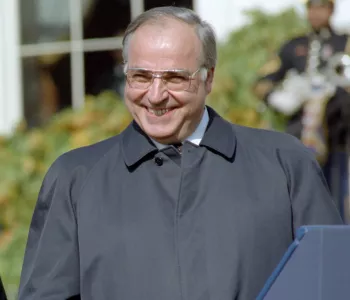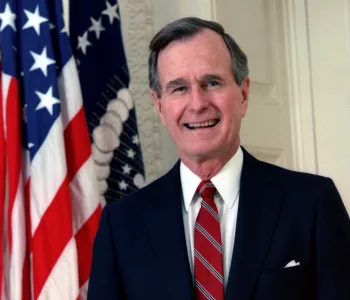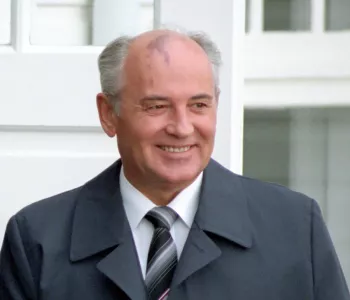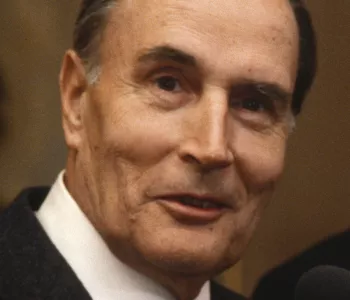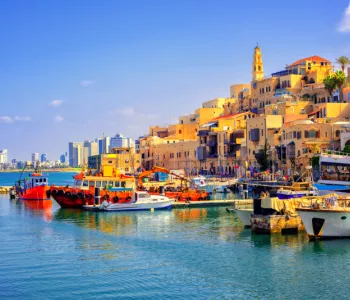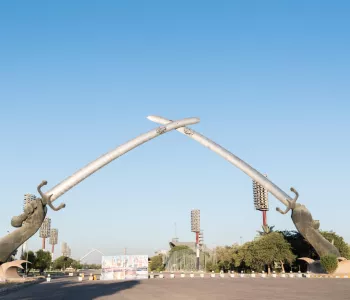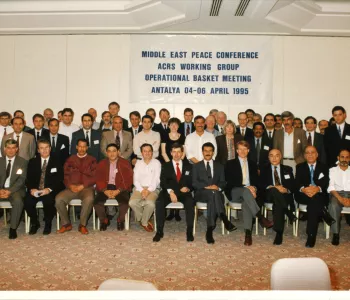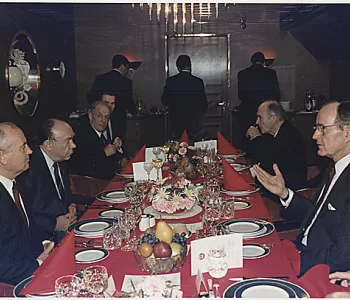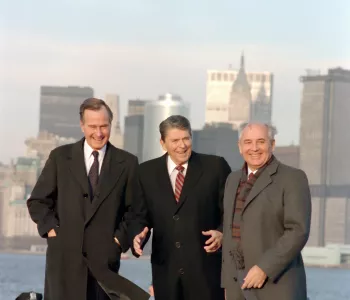d'Vinci

Baker, James Addison 1930-
James Addison Baker III, American politician and diplomat, was Chief of Staff in the President Ronald Reagan's first administration, and Secretary of State in the administration of President George H. W. Bush.

Born in Houston, Texas, Baker was educated at Princeton University, and received a bachelor's degree in 1952. He served in the United States Marine Corps for two years as a lieutenant. After his service in the Marine Corps, Baker received a law degree from the University of Texas School of Law in 1957. Baker became employed with the law firm Andrews & Kurth, where he remained until 1975.
Originally a Democrat, Baker switched to the Republican party and managed George H. W. Bush's unsuccessful Senate campaign in 1970.
Baker served as Undersecretary of Commerce under President Gerald Ford in 1975 and ran Ford's unsuccessful election campaign in 1976. Baker ran an unsuccessful race in 1978 to become State Attorney General of Texas.
After serving as George H.W. Bush's campaign manager in the 1980 Republican primaries, Baker was named White House Chief of Staff by President Reagan in 1981. He served in that capacity until 1985. Due to Reagan's passive management style, Baker was seen as having a high degree of influence over the successes and failures of the first Reagan administration.
After managing Reagan's successful reelection campaign in 1984, Baker was appointed Secretary of the Treasury in January of 1985 — he "switched roles" with the former Secretary of the Treasury, Donald Regan, who replaced Baker as Chief of Staff. During the Reagan administration Baker also served on the Economic Policy Council, where he was instrumental in achieving the passage of the administration's tax and budget reform legislation package in 1981.
Baker served on Reagan's National Security Council, and remained Treasury Secretary through 1988, during which year he also served as campaign chairman for Bush's successful presidential bid.
Baker served as Secretary of State for President Bush from 1989-1992. He was awarded the Presidential Medal of Freedom in 1991. He is credited as a leading architect of the peaceful transition from communism to democracy in Europe beginning in 1989.
In March 1997 Baker became the Personal Envoy of the UN Secretary-General for Western Sahara. In June 2004 he resigned from this position, frustrated over the lack of progress in reaching a complete settlement acceptable to both the government of Morocco and the pro-independence Polisario Front.
Baker served as chief legal advisor for George W. Bush during the 2000 election campaign and oversaw the Florida recount. He is currently (as of 2003) senior counsel to the Carlyle Group.
In late 2003 he was drafted by the President to assist in the operations of the US-led occupation of Iraq. He is also a special envoy to the president to persuade other countries to relief Iraqi debts.
He and his wife, the former Susan Garrett, have eight children.
